|
Books Should Be Free Loyal Books Free Public Domain Audiobooks & eBook Downloads |
|
|
Books Should Be Free Loyal Books Free Public Domain Audiobooks & eBook Downloads |
|
Non-fiction |
|---|
|
Book type:
Sort by:
View by:
|
By: Nellie Bly (1864-1922) | |
|---|---|
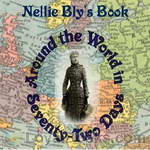 Around the World in Seventy-Two Days
Around the World in Seventy-Two Days
This is a true account by American woman journalist who, in 1889, set out to see whether she could beat the fictional journey in Jules Verne’s 1873 novel, Around the World in Eighty Days. Wearing one dress and carrying one handbag, Elizabeth Cochrane Seaman (pen name “Nellie Bly”), reported her travels back to avid readers in America. | |
By: Amelia B. Edwards (1831-1892) | |
|---|---|
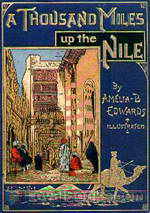 A Thousand Miles up the Nile
A Thousand Miles up the Nile
Known as the Godmother of Egyptology, Amelia Ann Blanford Edwards traveled through Egypt at a time when archeology was in its infancy in that country and literally anyone with a spade or trowel could go exploring through the magnificent, untouched ruins. She was one of a group of amazing Victorian women who ignored the repressive 19th century attitudes toward female scientists and defied society to follow their passion for history. A Thousand Miles up the Nile was first published in 1877. The title refers to the approximate distance from Alexandria to the Second Cataract of the Nile river, a journey that the author undertook over the course of a year in Egypt... | |
 Untrodden Peaks and Unfrequented Valleys
Untrodden Peaks and Unfrequented Valleys
Amelia B. Edwards wrote this historical travelogue in in 1873. The book describes her travels through a relatively un-visited area in the South Tyrol district of Italy. The Dolomites are a part of that most famous of mountain chains, the Alps.In this book, the Writer and her friend and companion, L., travel from Southern Italy, having over-wintered there, to visit the Dolomite district. Her chatty style, dry sense of humor, accuracy of facts, and sympathy for humanity set her works apart. The slice of Victorian British life presented is quite captivating... | |
By: Patrick Henry (1736-1799) | |
|---|---|
 The Anti-Federalist Papers
The Anti-Federalist Papers
During the period of debate over the ratification of the Constitution, numerous independent local speeches and articles were published all across the country. Initially, many of the articles in opposition were written under pseudonyms, such as “Brutus”, “Centinel”, and “Federal Farmer”. Eventually, famous revolutionary figures such as Patrick Henry came out publicly against the Constitution. They argued that the strong national government proposed by the Federalists was a threat to the rights of individuals and that the President would become a king... | |
 Give Me Liberty or Give Me Death
Give Me Liberty or Give Me Death
This speech was given March 23, 1775, at St. John’s Church in Richmond, Virginia, and is credited with having singlehandedly convinced the Virginia House of Burgesses to pass a resolution delivering the Virginia troops to the Revolutionary War. In attendance were Thomas Jefferson and George Washington. Reportedly, the crowd, upon hearing the speech, jumped up and shouted, “To Arms! To Arms!” | |
By: Susanna Moodie (1803-1885) | |
|---|---|
 Life in the Clearings
Life in the Clearings
If you've read Margaret Atwood's Alias Grace, the historical fiction novel that describes a gruesome double murder in Canada in 1843, you would be interested to know the sources that were used by Atwood during her research. Life in the Clearings by Susanna Moodie was one such reference book in which the author, Susanna Moodie recounts her meeting with the infamous murderess Grace Marks, a young house help who was convicted to life imprisonment for her role in the slaying of her employers. Susanna Moodie was an Englishwoman born in Suffolk... | |
 Roughing It in the Bush
Roughing It in the Bush
'Roughing It In the Bush' is Susanna Moodie's account of how she coped with the harshness of life in the woods of Upper Canada, as an Englishwoman homesteading abroad. Her narrative was constructed partly as a response to the glowing falsehoods European land-agents were circulating about life in the New World. Her chronicle is frank and humorous, and was a popular sensation at the time of its publication in 1852. | |
By: Sinclair Lewis | |
|---|---|
 The Trail of the Hawk
The Trail of the Hawk
| |
By: Charles Kingsley (1819-1875) | |
|---|---|
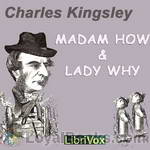 Madam How and Lady Why
Madam How and Lady Why
Did you ever wish you knew how to explain natural phenomena such as earthquakes and volcanoes to your children? Search no more, this book has all the answers (at least all the ones that were known in 1869) and gives them in a pedagogical way. Listed on the Ambleside homeschooling list. | |
By: Saint Thomas Aquinas (1225-1274) | |
|---|---|
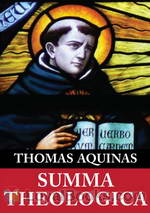 Summa Theologica, Pars Prima
Summa Theologica, Pars Prima
More than nine hundred years after it was first written, this unfinished work of a scholar saint still has the power to move our minds and hearts and set us thinking on the really important questions of life. Summa Theologica or simply the Summa as it is known, was written some time between 1265-74. It is a work that has had a profound and enduring influence on Western thought and literature. Designed to provide answers to Catholic theologians about the teachings of the Church, Thomas Aquinas' book instead goes far beyond its stated purpose... | |
By: Thucydides (Θουκυδίδης) (c. 460-395) | |
|---|---|
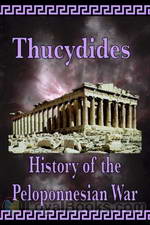 The History of the Peloponnesian War
The History of the Peloponnesian War
The History of the Peloponnesian War is an account of the Peloponnesian War in Ancient Greece, fought between the Peloponnesian League (led by Sparta) and the Delian League (led by Athens) in the 5th Century BC. It was written by Thucydides, an Athenian general who served in the war. It is widely considered a classic and regarded as one of the earliest scholarly works of history. The History is divided into eight books. These book divisions are the work of editors in later antiquity. W. R. Connor [...] describes Thucydides as “an artist who responds to, selects and skillfully arranges his material, and develops its symbolic and emotional potential.” | |
By: Leon Trotsky (1879-1940) | |
|---|---|
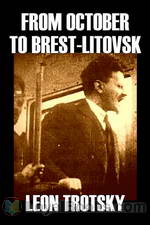 From October to Brest-Litovsk
From October to Brest-Litovsk
This account by Trotsky is of the events in Russia from the October Revolution of 1917 in Petrograd, to his signing of the Brest-Litovsk treaty with Germany on 3rd March 1918 which took Russia out of the First World War. The treaty exacted heavy losses for Russia in terms of annexations of land and financial indemnities to Germany. In this extended essay, Trotsky argues the reasons as to why he decided to sign what appears to be a disastrous agreement for Russia. | |
By: Publius Cornelius Tacitus | |
|---|---|
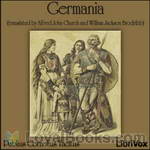 Germania
Germania
The Germania (Latin: De Origine et situ Germanorum, literally The Origin and Situation of the Germans), written by Gaius Cornelius Tacitus around 98, is an ethnographic work on the Germanic tribes outside the Roman Empire. Germania fits squarely within the tradition established by authors from Herodotus to Julius Caesar. Tacitus himself had already written a similar essay on the lands and tribes of Britannia in his Agricola. The Germania begins with a description of the lands, laws, and customs... | |
 The Annals
The Annals
The Annals was Tacitus’ final work, covering the period from the death of Augustus Caesar in the year 14. He wrote at least 16 books, but books 7-10 and parts of books 5, 6, 11 and 16 are missing. Book 6 ends with the death of Tiberius and books 7-12 presumably covered the reigns of Caligula and Claudius. The remaining books cover the reign of Nero, perhaps until his death in June 68 or until the end of that year, to connect with the Histories. The second half of book 16 is missing, ending with the events of the year 66... | |
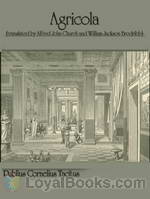 Agricola
Agricola
The Agricola (Latin: De vita et moribus Iulii Agricolae, lit. On the life and character of Julius Agricola) is a book by the Roman historian Tacitus, written c 98, which recounts the life of his father-in-law Gnaeus Julius Agricola, an eminent Roman general. It also covers, briefly, the geography and ethnography of ancient Britain. As in the Germania, Tacitus favorably contrasts the liberty of the native Britons to the corruption and tyranny of the Empire; the book also contains eloquent and vicious polemics against the rapacity and greed of Rome. This translation by Alfred John Church and William Jackson Brodribb, was first published in 1877. | |
 A Dialogue Concerning Oratory, or the Causes of Corrupt Eloquence
A Dialogue Concerning Oratory, or the Causes of Corrupt Eloquence
The scene of the Dialogus de Oratoribus, as this work is commonly known, is laid in the sixth year of Vespasian, 75 a.D. The commentators are much divided in their opinions about the real author; his work they all agree is a masterpiece in the kind; written with taste and judgement; entertaining, profound, and elegant. It is normally considered to have been written by Tacitus, even though some ascribe it to Quintilian. The main subject is the decadence of oratory, for which the cause is said to be the decline of the education, both in the family and in the school, of the future orator. In a certain way, it can be considered a miniature art of rhetoric. | |
By: Alexis de Tocqueville (1805-1859) | |
|---|---|
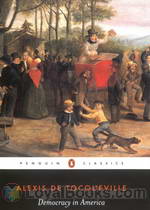 Democracy in America
Democracy in America
Arguably, one of the most influential and insightful pieces of work concerned with American political life, Democracy in America directs itself towards American politics and society, and is considered to be one the best books written on the subject. Published in 2 volumes, in 1835 and 1840, Tocqueville records his findings after studying the thriving nation in his nine month exploratory journey. The young French aristocrat first came to America on an official assignment to study the American penal system, but instead used this as a pretext to study American society... | |
By: Unknown | |
|---|---|
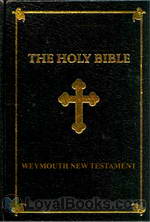 The Bible, Weymouth New Testament (WNT) - Matthew
The Bible, Weymouth New Testament (WNT) - Matthew
The Weymouth New Testament ("WNT"), otherwise known as The New Testament in Modern Speech or The Modern Speech New Testament, is a translation into "modern" English as used in the nineteenth century from the text of The Resultant Greek Testament by Richard Francis Weymouth from the Greek idioms used in it. It was later edited and partly revised by Reverend Ernest Hampden-Cook in London, England. Publishers: Baker and Taylor Company (New York) in 1903 and James Clarke & Co (London) in 1903.Richard Francis Weymouth's popular translation of the New Testament into English was first published in 1903 and has been in print through numerous editions ever since with millions of copies sold... | |
By: Herodotus of Halicarnassus (440 BC) | |
|---|---|
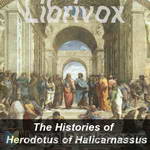 Herodotus' Histories
Herodotus' Histories
The Histories of Herodotus of Halicarnassus is considered the first work of history in Western literature. Written about 440 BC, the Histories tell the story of the war between the Persian Empire and the Greek city-states in the 5th century BC. Herodotus traveled extensively around the ancient world, conducting interviews and collecting stories for his book. The rise of the Persian Empire is chronicled, and the causes for the conflict with Greece. Herodotus treats the conflict as an ideological one, frequently contrasting the absolute power of the Persian king with the democratic government of the Greeks. | |
By: Joshua Slocum (1844-1909) | |
|---|---|
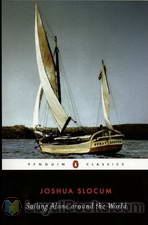 Sailing Alone Around the World
Sailing Alone Around the World
A sailing memoir written by seaman and adventurer Joshua Slocum, who was the first person to sail around the world alone, documents his epic solo circumnavigation. An international best-seller, the book became a great influence and inspiration to travelers from each corner of the globe. Additionally, Slocum is an example that through determination, courage and hard work any dream can easily become a reality. Written in a modern and conversational tone, the autobiographical account begins with Slocum’s description of his hometown of Nova Scotia and its maritime history... | |
By: Willa Sibert Cather (1873-1947) | |
|---|---|
 Collection Of Stories, Reviews And Essays
Collection Of Stories, Reviews And Essays
Stories and essays by Willa Cather | |
By: John H. Haaren (1855-1916) | |
|---|---|
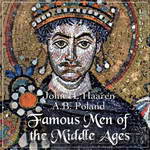 Famous Men of the Middle Ages
Famous Men of the Middle Ages
“THE study of history, like the study of a landscape, should begin with the most conspicuous features. Not until these have been fixed in memory will the lesser features fall into their appropriate places and assume their right proportions. The famous men of ancient and modern times are the mountain peaks of history. It is logical then that the study of history should begin with the biographies of these men. Not only is it logical; it is also pedagogical. Experience has proven that in order to attract and hold the child’s attention each conspicuous feature of history presented to him should have an individual for its center... | |
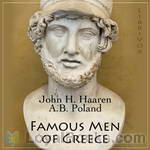 Famous Men of Greece
Famous Men of Greece
Famous Men of Greece is a series of biographical sketches written for the purpose of making the study of history lively and interesting by giving insight into the men who lived during this time. | |
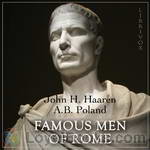 Famous Men of Rome
Famous Men of Rome
Famous Men of Rome is a series of biographical sketches written for the purpose of making the study of history lively and interesting by giving insight into the men who lived during this time. | |
By: Thomas a Kempis (1380?-1471) | |
|---|---|
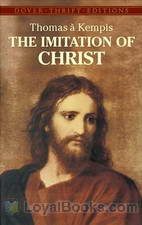 The Imitation of Christ
The Imitation of Christ
The Imitation of Christ is widely considered one of the greatest manuals of devotion in Christianity. The life of Christ is presented as the highest study possible to a mortal, as Jesus’ teachings far excel all the teachings of the saints. The book gives counsel to read the scriptures, statements about the uses of adversity, advice for submission to authority, warnings against temptation and how to resist it, reflections about death and the judgment, meditations upon the oblation of Christ, and admonitions to flee the vanities of the world. A recording of a Dutch translation of this work is also available (Thomas a Kempis was Dutch but wrote in Latin of course). | |
By: Gaston Maspero (1846-1916) | |
|---|---|
 History Of Egypt, Chaldea, Syria, Babylonia, and Assyria
History Of Egypt, Chaldea, Syria, Babylonia, and Assyria
History Of Egypt, Chaldæa, Syria, Babylonia, and Assyria is the masterwork of one of the fathers of modern egyptology. This work, in twelve volumes, was translated from the French original, “Histoire ancienne des peuples de l’Orient classique” and published in 1903-1904. Maspero was a largely self-taught master of hieroglyphic translation. In November 1880, he was placed at the head of a French archeological mission, which developed later into the Institut Français d’Archéologie Orientale... | |
By: Marcus Aurelius (121-180) | |
|---|---|
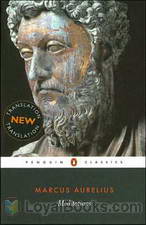 Meditations
Meditations
Marcus Aurelius was a Roman Emperor and philosopher who wrote Meditations; insights which were considered to give the meaning of life. The book was not written with the intent to be published. It offers a noteworthy chain of challenging situations which are a reflection on spirituality and enumerate the struggle to understand oneself and one's role in the universe. Written in the style of a journal, Meditations emphasizes that life in this world is short. Aurelius was a stoic philosopher who had influenced the thoughts of many leaders in his time... | |
By: Bertrand Russell (1872-1970) | |
|---|---|
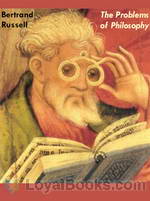 The Problems of Philosophy
The Problems of Philosophy
Published in 1912, The Problems of Philosophy by Bertrand Russell is one of his most popular books. It renders philosophical issues and questions in a way in which they become relevant and accessible to the man or woman on the street, provoking them to devote time and effort into thinking about these aspects of life. Here, the great philosopher and humanist thinker Bertrand Russell examines the importance of empirical (that which can be verified by observation or experience rather than deduced from logic or reasoning) thinkers like David Hume and George Berkeley the Anglo-Irish philosopher and scientist... | |
 Proposed Roads to Freedom
Proposed Roads to Freedom
Bertrand Russell, 3rd Earl Russell (1872 – 1970) was a British philosopher, logician, mathematician, political activist and Nobel laureate. He led the British “revolt against idealism” in the early 1900s and is considered one of the founders of analytic philosophy along with his predecessor Gottlob Frege and his protégé Ludwig Wittgenstein. In this book, written in 1918, he offers his assessment of three competing streams in the thought of the political left: Marxian socialism, anarchism and syndicalism. | |
By: Flavius Josephus (37 - c.100) | |
|---|---|
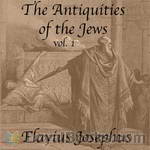 The Antiquities of the Jews
The Antiquities of the Jews
Antiquities of the Jews was a work published by the important Jewish historian Flavius Josephus about the year 93 or 94. It is a history of the Jewish people, written in Greek for Josephus' gentile patrons. Beginning with the creation of Adam and Eve, it follows the events of the historical books of the Hebrew Bible, but sometimes omits or adds information.Volume 1 contains Books 1-5 and ends with the dedication of Samuel and death of Eli the priest. | |
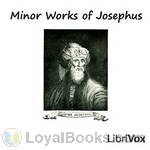 Minor Works of Josephus
Minor Works of Josephus
There are 3 parts to this collection.(1) Against Apion is a two-volume defense of Judaism as classical religion and philosophy, stressing its antiquity, as opposed to what Josephus claimed was the relatively more recent tradition of the Greeks. Some anti-Judean allegations ascribed by Josephus to the Greek writer Apion, and myths accredited to Manetho are also addressed.(2) Discourse To The Greeks Concerning Hades describes the author's views on the afterlife against the prevailing view of the "Greeks" (i... | |
By: Emma Goldman (1869-1940) | |
|---|---|
 Anarchism and Other Essays
Anarchism and Other Essays
Chicago, May 4, 1886. In the Haymarket region of the city, a peaceful Labor Day demonstration suddenly turns into a riot. The police intervene to maintain peace, but they soon use violence to quell the mob and a bomb is thrown, resulting in death and injuries to scores of people. In the widely publicized trial that followed, eight anarchists were condemned to death or life imprisonment, convicted of conspiracy, though none of them had actually thrown the bomb. A young Russian immigrant, Emma Goldman, had arrived just the previous year in the United States... | |